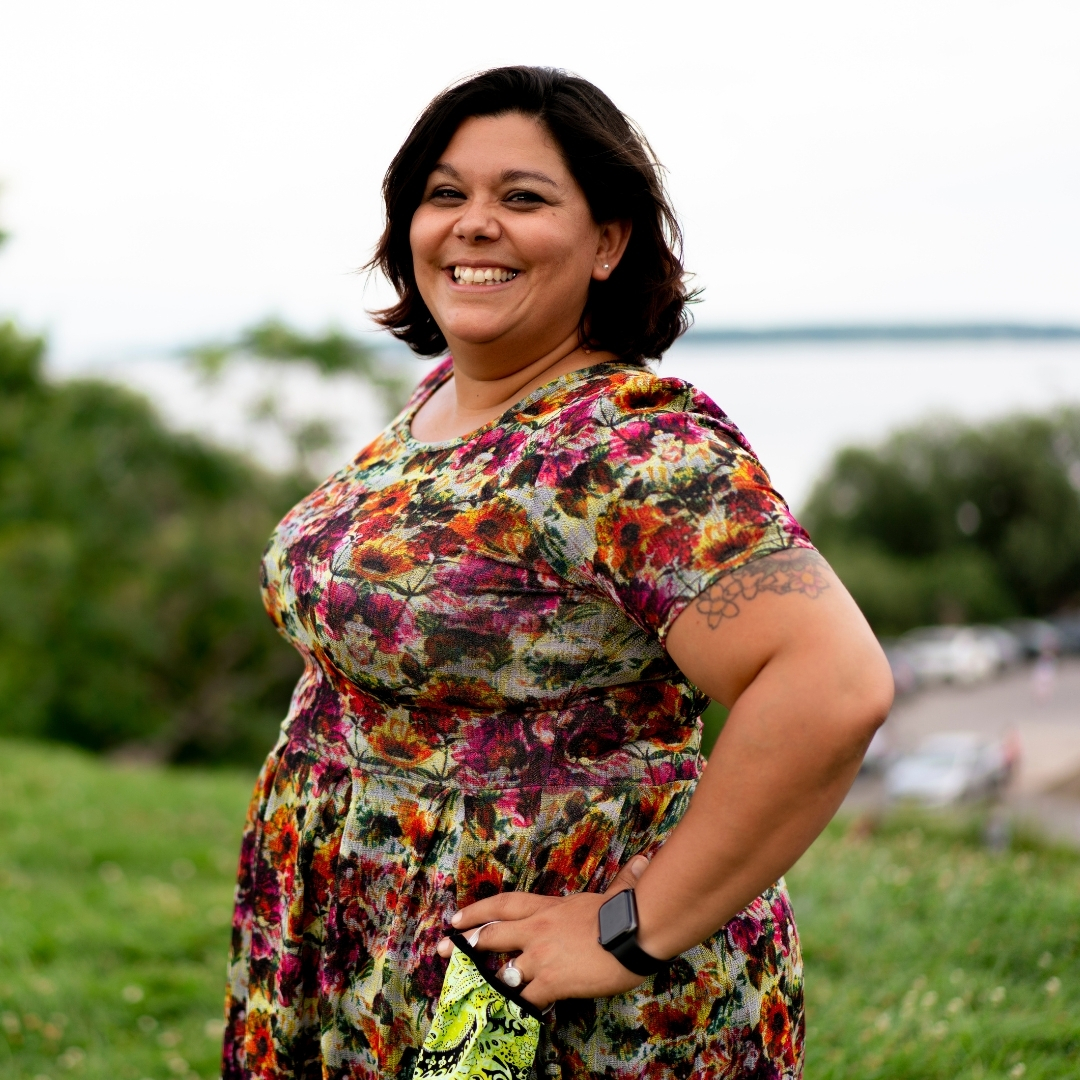Q&A with City Councilwoman April Fournier
April Fournier
City Council | Portland, ME
 Tell us about your background. What are the experiences, including education, that make up the person you currently are?
Tell us about your background. What are the experiences, including education, that make up the person you currently are?
To start with I’m a mom of four children. They range in ages from 20-13. Being a mom involves multi-tasking, negotiation, organizing, communication and patience like no other job! Being mom to a child with autism was what changed my career path from business and project management to early childhood intervention and education. It was also what started me in public advocacy and learning more about policymaking. I’m also Dine’ or Navajo, but grew up away from my tribe and traditions because my mother was adopted off the reservation while my grandmother was sick in the early 1960s. She did her best to teach my sister and me about our tribe, but we’ve all learned more together as adults as I’ve worked to elevate issues in my own community around tribal recognition, native discrimination and improving native history in our schools.
What was your trigger moment and why this specific office?
During the summer of 2020 when COVID was just really hitting our communities hard I watched the city council meetings and their response to the murder of George Floyd and the increasing pandemic issues affecting our unhoused population, which led to an encampment on the steps of city hall. This was a HUGE moment for our community, but it seemed like council treated the public as second-class citizens and without consideration for their current circumstances. There were unhoused individuals calling in to public comment from borrowed phones who were given instructions to call back, email or pick the right time to comment. I wanted to run then and bring someone to council who would consider citizen perspective, work to elevate the voices most often silenced and forgotten and create space for everyone in our city to be involved in the decisions affecting them.
What made you feel qualified to run for office?
I was watching the confirmation hearings for former education secretary Betsy DeVos and it was the catalyst for me to decide that I wanted to run for something to prevent someone like her from ever holding that power again. This led me to find Emerge, a national Democratic training program for women. I completed the program in 2018 and then stayed in the loop on local happenings so I would be ready when the time was right.
Do you work full-time or part-time?
Part-time.
Most people don’t know what their elected official does on a daily basis. What’s a typical day looking like for you?
My current council seat is part-time and paid less than minimum wage at part-time, so I have a full-time job in addition to council work. My day-to-day council work includes emails and phone calls from community members, invitations to meet and chat with other elected officials, business owners and community members, research on topics we cover during council committee meetings and full council meetings. I serve on the council Legislative and Nominating Committee and the Finance Committee, so budget season and the legislative sessions are very busy times of year for me.
Additionally, they might not know what their elected official is responsible for. What is your role in comparison to other elected offices on your level?
As a councilor, I’m 1/9th of the voting body. We approve the school budget, we approve the city budget, we approve business licenses, property and zoning requests, and local ordinances like housing, human services, environmental and transportation activities. We provide input on state legislation as it relates to our city.
What do you think people would be surprised to know someone in your position does?
Spend as much time monthly on preparing for council meetings as we do. Some meeting packets are 500+ pages long and to ensure we make good policy decisions it’s really important to take time to understand the proposals before voting on them.
What are 3-5 skills needed to be successful in the elected office you served in/are currently serving in?
Patience, flexibility in action and thinking, semi-organized, collaborative and a good listener.
What’s the best part about serving in elected office?
At the municipal level, I can see immediate impact on the decisions we make. It might be fixing a streetlight or creating housing solutions for people experiencing homelessness. By serving in elected office at the local level I get to see the work I do in action. I get to include the voices I see left behind and create space for them to be heard.
What has been the accomplishment you’re most proud of while in office?
I created a resolution to recognize Missing and Murdered Indigenous Womens’ Day and worked to ensure the school budget passed as recommended without reductions.
In terms of finances, how much money did you have to raise for your campaign?
I raised about $10,000 for an at-large city council race. My primary opponent had served 2 terms on the school board and 2 terms on the council and outraised me by nearly 4:1. Our biggest expense was mailers because I knew we needed to reach voters remotely given the pandemic. It worked!
What’s one piece of advice you would give to someone who’s thinking about running for the position you serve/have served in their community?
You don’t need years of political experience to serve your community in elected office. You have so much lived experience in ways that your community can benefit from and you can learn the particulars along the way. Your voice and who you are create a connection to people and why they will vote for you. Stay authentic to that. I don’t have a public and private persona, I’m 100% me all the time and that resonates with my community.
